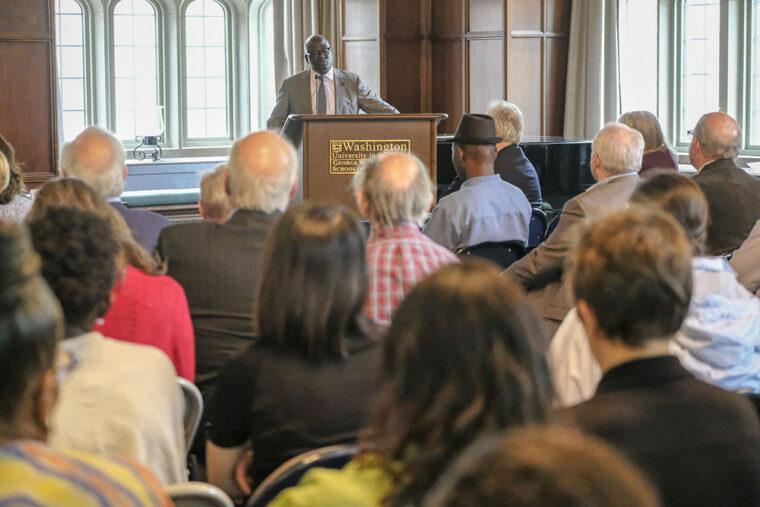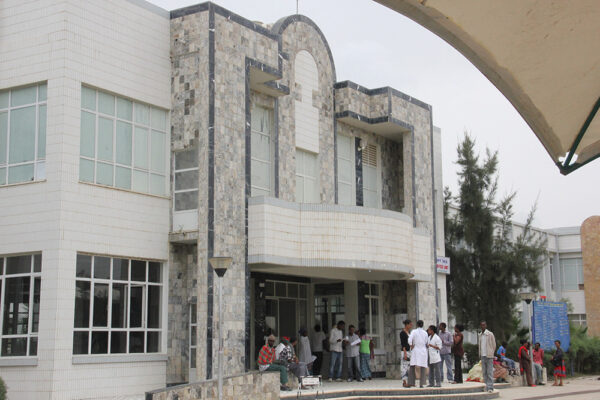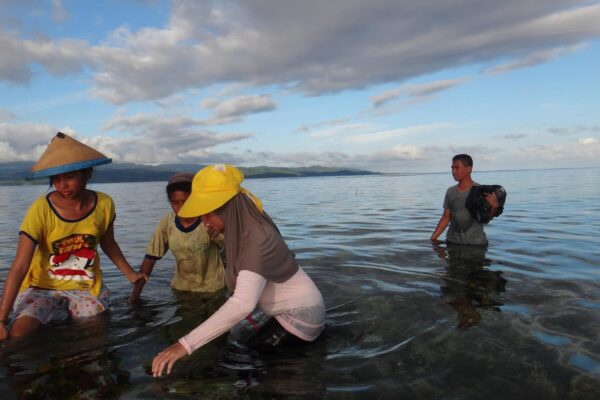Washington University in St. Louis is committed to engaging with its global partners to help address our biggest challenges together. This spirit of collaboration was evident at the inaugural meeting of the Africa initiative, held April 23 on the Danforth Campus.
“We’re building relationships that will strengthen Washington University and also bring important benefits to the people who live in Africa,” Chancellor Mark S. Wrighton said.
At the event, titled “Engaging in Africa: Lessons Learned,” Benjamin Akande, assistant vice chancellor for international affairs-Africa, updated the audience about the efforts of the Africa initiative. The initiative was founded last year to enhance the university’s impact through research, teaching and entrepreneurship on the continent. Akande reported that currently, there are 128 faculty members engaged in 36 countries on the continent and that more than a hundred faculty are interested in getting involved in some way.
“Africa provides an opportunity for Washington University, particularly in advancing research and teaching collaborations,” Akande said. “We understand that we cannot do this alone; this is something that we need to do in tandem with our African partners. Our role is to build that bridge that connects Washington University to Africa, and Africa to Washington University.”

Akande also moderated a panel in which three faculty members described their work in Africa:
- Fred Ssewamala, the William E. Gordon Distinguished Professor and founding director of the International Center for Child Health and Development at the Brown School, talked about his efforts to further family-based economic empowerment and improve the outcomes of children and youth impacted by HIV and poverty in sub-Saharan Africa, particularly in Uganda, Kenya, Ghana and South Africa.
- George Kyei, assistant professor of medicine at the School of Medicine, discussed his research on HIV latency and the factors that control virus replication. Kyei has labs at the School of Medicine and at the University of Ghana, Accra.
- Krista Milich, assistant professor of biological anthropology in Arts & Sciences, explores primate behavior and how to reduce human-wildlife conflict. The majority of her field work takes place in Uganda, and she described her ongoing efforts there in community conversation.
The university’s involvement in Africa is robust: its researchers are tackling public health issues affecting Africa, as well as women’s health, infectious diseases and childhood nutrition. Human development is also a key outreach point: Mary McKay, the Neidorff Family and Centene Corporation Dean of the Brown School, leads the SMART Africa Center, a collaborative effort aimed at lessening gaps in child and teen mental health in Ghana, Kenya and Uganda. Washington University also has a close relationship with McDonnell International Scholars Academy affiliate University of Ghana. Akande said there’s a chance for a more structured involvement on the continent.
“Washington University is very established on the continent,” Akande said. “Some of these engagements go back 20 to 25 years, and they are spread across the university’s seven schools. There is huge opportunity and significant potential for Washington University moving forward, and additionally, we hope to identify and engage key partners and supporters for the Initiative in the United States and Africa.”



